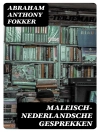In ‘War and the Arme Blanche, ‘ Erskine Childers presents a compelling treatise on the ethics of military engagement and the psychological ramifications of warfare, particularly in the context of the early 20th century conflicts. Written with a meticulous attention to detail, Childers employs a narrative style that blends personal reflections with historical analysis, capturing the stark realities of combat through both prose and poetry. The book effectively critiques the conventional view of modern warfare, advocating for an acknowledgment of the moral choices that soldiers must confront, as well as the broader societal impacts of armed conflict. Childers’ nuanced exploration of the ‘arma blanche’—the bayonet and its symbolic representation of direct, close combat—positions the text within a rich literary tradition concerned with the human experience of war. Erskine Childers was not only a writer but also a passionate political activist, deeply influenced by his experiences in the Boer War and his strong nationalist sentiments. His background as an Irishman with British colonial ties provided a unique perspective on issues of imperialism and freedom, which are deeply woven into this work. Childers’ firsthand encounters with the horrors of war serve as the foundation for his poignant reflections, urging readers to contemplate the ethical implications of their societies’ military actions. ‘War and the Arme Blanche’ is a must-read for those seeking to understand the multifaceted nature of warfare and its lasting consequences on humanity. Ideal for scholars, historians, and any thoughtful readers interested in military ethics and literary critiques of war, this book invites readers to engage in a vital conversation about the responsibilities of soldiers and the moral exigencies faced in times of conflict.
Circa l’autore
Robert Erskine Childers (1870–1922), commonly known as Erskine Childers, was an influential writer, sailor, and political figure whose work extended into both literature and political activism. His life was as fascinating as his written works, with experiences ranging from serving in the British Army during the Boer War, to his key role in the Irish nationalist movement. Childers is perhaps best known in literary circles for his seminal work ‘The Riddle of the Sands’ (1903), a book often credited as one of the earliest examples of the espionage thriller genre that also expressed his passion for sailing. While ‘War and the Arme Blanche’ is less heralded, it demonstrates his analytical capacity, focusing on military strategy and tactics during the Boer War, a subject on which he had firsthand experience. Through both direct and implied narratives, Childers utilized his profound understanding of strategic warfare to critique traditional cavalry charges in the face of modern weaponry. His literary style is characterized by a synthesis of detailed naval knowledge, political contexts, and an ability to weave suspense with intricacy. Childers met an untimely death by firing squad during the Irish Civil War after having been convicted by the Irish Free State for illegal possession of a firearm. His life and work remain subjects of study for their contributions to literature, maritime adventure writing, and insights into Early 20th century Anglo-Irish relations.












